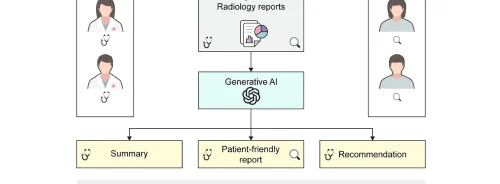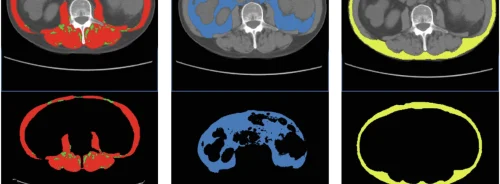Use of iterative cycles to refine interventions reflects engagement of the most basic proven quality improvement (QI) methodology. However, a new systematic review has found that fewer than half (46 percent) of published imaging QI projects used repeated test of change to refine an intervention.
"Engagement of iterative cycles was associated with studies that were designed to improve processes instead of implementation, were supported by QI expert, reported unintended effect of intervention, and explicitly stated use of iterative cycles," write review authors.
It is estimated that imaging error contributes to about 10 percent of patient deaths. The problem of imaging error is not limited to the act of diagnosis; imaging errors associated with radiologists are promoted by system failures that span the complex process of healthcare delivery. As a result, radiologists, among others, are under pressure to improve systems to deliver safer, more reliable care.
System improvement practices, though familiar in manufacturing, are new to radiology. Effective improvement methodologies popular in healthcare include Motorola’s Six Sigma, Toyota’s Lean programme, and the model of the Institute for Health Care Improvement, among others. Although these methodologies differ, a science-based component they all share is the use of the iterative cycle to conduct small tests of change.
"A deterrent to adopting iterative cycle design is that it consumes considerable time and resources," the review authors note. "We hypothesise that iterative cycle design is adopted in a minority of imaging-related publications."
Yvonne Y. Cheung, MD, MS, Department of Radiology, Dartmouth Hitchcock Medical Center (Lebanon, New Hampshire) and co-authors conducted this review to: 1) provide insight on the frequency of use of iterative cycles in QI projects published in radiology journals; and 2) assess association of the use of iterative cycles with characteristics of these projects.
The authors searched English-language radiology journals on MEDLINE between 2008 and 2015 for published QI studies. Three reviewers appraised studies and extracted data. A study was designated as “used iterative cycle” (or >1 cycle) when either or both of the following were true:
- The publication described more than one cycle of refinement of intervention.
- The publication explicitly used terms like pilot, trial, stages, test of change, cycles of improvement, iterative cycles, PDSA (plan-do-study-act) or PDCA (plan-do-check-adjust), and make adjustment even without inclusion of details of such features.
Use of iterative cycles was identified, and results were summarised qualitatively. χ2 Analysis evaluated associations of iterative cycles with other data elements.
Of 3,134 potentially eligible citations, 44 studies met inclusion criteria. Only 46 percent of these used iterative cycles to refine intervention. Use of iterative cycles were associated with projects designed to improve process, QI expert support, reporting of unintended effect of intervention, and explicitly stated use of iterative cycles. General lack of scientific rigour was represented by failure to report baseline data (9 percent), describe unintended effects (66 percent), and discuss limitations (36 percent).
"The implications of our findings are that improvement teams who were more knowledgeable about QI methodology, as demonstrated by presence of QI expert support and attention to unintended consequences of intervention, were more likely to utilise rigorous QI methods such as iterative methods and SPC [statistical process control] chart," the authors say. "In contrast, improvers who did not use iterative methodology likely lacked QI expert support, preferred implementation projects, and displayed inattention to unintended effects of intervention."
These findings underscore the need for increased emphasis on scientific aspects of QI techniques when training residents, and development of an evidence-based framework to assess effectiveness and replicability of QI activities, the authors add.
Image Credit: Pixabay
References:
Cheung YY, Riblet NBV, Osunkoya TO (2018) Use of Iterative Cycles in Quality Improvement Projects in Imaging: A Systematic Review. J Am Coll Radiol. Article in Press, Published online 01 September 2018. DOI: https://doi.org/10.1016/j.jacr.2018.06.007
Latest Articles
Radiology, quality improvement, QI methods
Use of iterative cycles to refine interventions reflects engagement of the most basic proven quality improvement (QI) methodology. However, a new systematic review has found that fewer than half (46 percent) of published imaging QI projects used repeated










